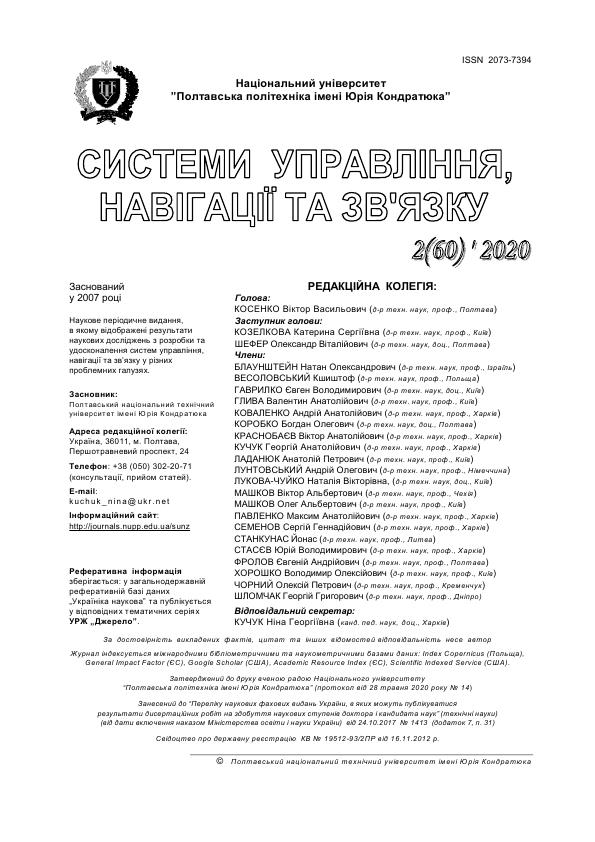РОЗВИТОК НАВЧАЛЬНИХ КОМП'ЮТЕРНИХ ІГР
DOI:
https://doi.org/10.26906/SUNZ.2020.2.056Ключові слова:
роль освітніх комп'ютерних ігор, етапи розвитку, каскадний та спіральний життєвий циклАнотація
Впровадження інформаційно-телекомунікаційних технологій в інформаційних процесах спрямоване на досягнення низки цілей: прискорення процесів обробки інформації та зниження витрат на їх реалізацію, рятування людини від необхідності виконувати рутинні дії та усунення негативного впливу людський фактор за результатом праці. Використання електронних навчальних посібників, тобто використання комп’ютерних технологій в освіті, не тільки дозволяє нам досягти цих цілей, але і дозволяє реалізувати низку унікальних особливостей, недоступних при використанні традиційних навчальних посібниківЗавантаження
Посилання
М. Prensky, "Simulations": Are They Games? // From Digital Game-Based Learning. — McGraw-Hill, 2001.
S. I. Arkhangelskii, V.P. Myzintsev, Information indicators of the educational process // Programmed training. Yield 11. - Kiev: Higher School 1997, pp. 15-25.
A. Rollings, D. Morris, Game Architecture and Design / Andrew Rollings, Dave Morris. — Pearson Education, 2003. — ISBN 0-735-71363-4.
G. Pask, Training as a process of creating a management system // Cybernetics and training problems. - M .: Mir, 2002, pp.25-85.
A.A. Serkov, V. I. Kovalev, A. A. Fomenko, Construction of teaching systems with elements of adaptation to the student's individuality // Bulletin of the National Technical University KhPI. Series: Informatics and Modeling, 2004, pp.165 - 168.
N. V. Berezin Perspectives of creation of adaptive testing system as an element of centralized testing // Scientific journal of MGTU GA, series "Informatics", no. 8, 2001, pp.26-30.
S. P. Grushevsky, N. Y. Dobrovolskaya, Yu. V. Koltsov, Organization of the educational process on the basis of a neural network computer training system // Bulletin of the Adygei State University. Series 3, Pedagogy and Psychology, 2008.
M. Prensky, Educational game design for online education // Computers in Human Behavior, 2008.
E. Boyle, et al, “The role of psychology in understanding the impact of computer games.”// Entertainment Computing 2(2), 2011, pp.69-74.
A. Ibrahim, et al, “Educational Video Game Design Based on Educational Playability: A Comprehensive and Integrated Literature Review.” International Journal On Advances in Intelligent Systems 5(3 and 4), 2012, pp.400-414.
O. Kasilov, O. Serkov, J. Breslavets, O. Dziabenko, Methods of creating information content in teaching computer games // Problems of computer science and modeling. Theses of the Sixteenth International Scientific and Technical Conference. - Kharkiv: NTU "KhPI", 2016, p.90.
M. Heron, P. Belford, H. Reid, M. Crabb, Eighteen months of meeple like us—An exploration into the state of board game accessibility. Computer Games Journal: Special Issue on Game Accessibility. TBD, 2018.
M. Bakhyt, O. Zhanar, A. Madina, J. Shynara, K. Dinara, B. Olimzhon, A Model of Virtual Training Application for Simulation of Technological Processes. ElSEVIER, Procedia Computer Science 56, 2015 pp.177 – 182.
L. V. Kapustina, A. Martynova, Training Employees in the Digital Economy with the Use of Video Games. Part of the Advances in Intelligent Systems and Computing book series AISC, vol. 908, pp. 444-454.
S. Baer, 5 Game-Based Training Solutions Τo Engage Millennial Employees, E-learning industry, retrived from https://elearningindustry.com/5-game-based-training-solutions-engage-millennial-employees.
E. Klopfer, S. Osterweil, K. Salen. Moving Learning Games Forward. The Education Arcade Massachusetts Institute of Technology.Massachuttes 2009, pp. 5-17.




